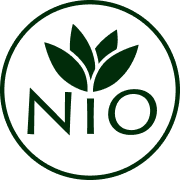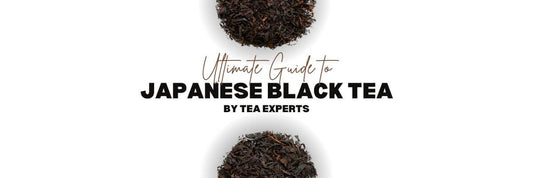Is it matcha or maccha? This is a question we get asked frequently, so we thought we would come up with a short explanation about what the story is behind this disagreement, and which spelling is correct. Whether you argue for maccha or matcha hopefully you still love the tea, and for that reason we will also be doing a short list of the benefits of matcha. Let’s dive into this complicated and controversial topic!
Bonus question: learn the Hojicha pronunciation 🍃🍵
What spelling is correct: Maccha or Matcha? or maybe Macha?

The word “correct” is tricky when it comes to the debate about maccha or matcha. It is important to point out that certain words are localized. For example, the Japanese word “Karaoke” is pronounced entirely different in Japan vs. the English speaking world. That being said, if you were to use the “correct” Japanese pronunciation in the U.S, people wouldn’t quite know what you were referring to.
This is where localization comes into play. Certain words need to be slightly mispronounced so they are more familiar to a new audience. The word maccha is the same story. So which version is localized, maccha or matcha? Maccha or macha is closer to being correct in Japanese, but the added “t” is useful when it comes to instructing the proper pronunciation in english.
Is “matcha” a spelling error?
Whether you use matcha or maccha you are not making a spelling error. These both are acceptable spellings in English. When it comes to the question of which is more popular, maccha or matcha the spelling with the “t” is clearly more popular and widely used.
Where does the debate over matcha or maccha come from?
The Japanese word for maccha contains two constituent parts. The first is “matsu” meaning ground and the seconds is “cha” meaning tea. These two words simply describe what matcha is literally, ground tea. Where it gets more complicated is the symbol in the middle known as a “soukon” or “small tsu”. This inserts a slight pause in between the two syllables. The spelling of maccha with the cc is officially recognized in Japan, and matcha is the result of the anglicization of the Japanese word. And the discussion of matcha or maccha then comes down to who the audience is. If you are speaking to an American or British audience, you should use the “matcha spelling” although neither matcha or maccha would technically be incorrect. Hopefully this hasn’t caused more confusion than it cleared up.
Brief history of the words Macha, Matcha and Maccha
To find the origins of the word maccha or matcha you need to go back to China. During the Tang Dynasty from the 7th century to the 10th century, tea was sold and transported in bricks. To consume the tea, it was broken off and ground into a powder to be mixed into water. The name “cha” means tea in Chinese (and later Japanese) and “matsu” means ground. This is where the name of maccha or matcha first originated, to refer to ground tea. The Japanese monks that travelled to Japan to study buddhism brought back many teachings from their Chinese counterparts and tea was one of them. Of course much of the Japanese language is influenced by Chinese, so the name of maccha or matcha was transferred to Japan as well
The best matcha or maccha is now produced in Japan, and certain techniques have been developed to improve the flavor. The tea of the Tang dynasty would likely be extremely bitter compared to the smooth and milky premium matcha of today.
5 Benefits of Matcha :
Whether you call it matcha or maccha, this super green tea has a plethora of benefits! Let’s discuss a few of them here.
Benefits of Matcha #1 High Caffeine
Matcha and Gyokuro have the highest caffeine content in the world of tea. This has to do with the selection of the leaves and the long shading process. To reduce the bitterness in matcha, a farmer will cover the tea plant with netting for 3 weeks leading up to the harvest. This prevents the tea plant from converting the sweet theanine into more bitter catechins, which improves the overall flavor. The tea plant also produce more caffeine during this time.
Caffeine is produced by the tea plant as a defense mechanism to protect against insects. The tea plant needs to produce more caffeine around the younger, more tender tea leaves as these are more vulnerable. As a result, teas made from the younger leaves like matcha, will have significantly higher levels of caffeine than teas made from older leaves like bancha. A high quality, ceremonial grade matcha will have 68mg of caffeine per cup, but if you really want to raise the level of caffeine, you can simply use 4 grams of powder instead of 2 for a total caffeine hit of 136mg of caffeine.
Benefits of Matcha #2 High Theanine
Even though matcha or maccha is high in caffeine, you may not feel quite as jittery as you would with coffee. This is likely due to the l-theanine in the tea. L-theanine is an amino acid that is found in tea and only 2 other known sources. It’s thought to work in synergy with the caffeine, to reduce some of the negative side effects, like jitters and crashing, while still allowing some of the positive effects like sustained energy. This contributes to the long lasting, calm alert feeling matcha drinkers report having throughout the day. If you switch from coffee to matcha, you may notice a huge improvement in your overall mood and your productivity.
Benefits of Matcha #3 High Antioxidants
While all teas contain some level of antioxidants (Epigallocatechin gallate) you’ll get more when you drink the tea in powder form. Unlike with other teas, when you drink matcha or maccha you are consuming the entire leaf. This means that you get a higher dose of everything, including the antioxidants. The antioxidant EGCG has been demonstrated to help with a variety of different ailments and it is thought to promote health and longevity.
Benefits of Matcha #4 May Help Lose Weight
There is no wonder why green tea extract is used as an ingredient in dozens of weight loss supplements. During a study at the School of Sport and Exercise Sciences at Birmingham, researchers found that giving participants green tea extract before moderate exercise led to a 17% improvement in the burning of fat. Of course rather than taking the green tea extract in a pill, you can just get it from the matcha directly. You may find matcha tea to be not only delicious, but also helpful along with diet and exercise when it comes to reaching your weight loss goals.
Benefits of Matcha #5 Easy to Prepare
The final benefit that makes the other 4 even better is that matcha is easy to prepare. You don’t need to worry about brewing parameters as you would with any other tea, you simply just need to mix the matcha powder into water. You can do this the simple way, but the best way is to use the bamboo matcha whisk or chasen. This not only does a great job at mixing the matcha evenly into the water, but it also helps you create that beautiful foam on top of the tea. This foam is not just for looks, it also gives the tea a lighter and creamier consistency, as well as a smoother taste.
Where to buy matcha tea
If you are looking to buy matcha or maccha, you can find plenty of great options on our website. After traveling around Japan for years and meeting with dozens of tea farmers, we selected our favorite matcha teas, all of which are grown without the use of pesticides or chemicals. If you would like to try our most popular matcha, you can go for the matcha washimine, a smooth and creamy okumidori matcha from the Nakai family outside of Kyoto. If you are feeling a bit indecisive, you can try the matcha sampler, a collection of the 21 best matcha teas we’ve found around Japan. With this bundle, you’ll also get the matcha whisk, matcha bowl and matcha spoon included, so you have everything you need to prepare matcha tea at home.
Bonus question: Do you know the hojicha pronunciation?
Hojicha is a Japanese word and the pronunciation is actually very simple. You simply need to follow the following rules:
Hojicha pronunciation
Hojicha is pronounced with a long "O" and ends in "Cha". Exactly like in matcha or maccha! In Japanese, "Cha" means tea. If you want ear the hojicha pronunciation, we invite you watch our Youtube video about hojicha in our article 👉 Everything You Need to Know About Hojicha.
Recommended articles
- 10 Difference between Matcha and Green Tea
- Top 21 Matcha Powders of 2022
- How to Differentiate Good From Bad Matcha with the Matcha Color
- The Ultimate Matcha Latte Recipe
- Is Matcha Good for You?
- All About Koicha by Japanese Tea Experts
- How is Matcha Made?
- Complete Ceremonial Matcha Preparation
- How to make matcha foam
- How to make matcha tea without whisk
- Does matcha give you energy?
- Why is matcha so expensive? Explanation by Experts
- How to make matcha taste good with 11 simple tips




